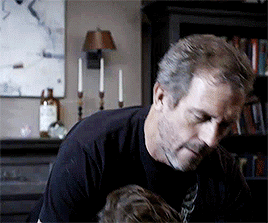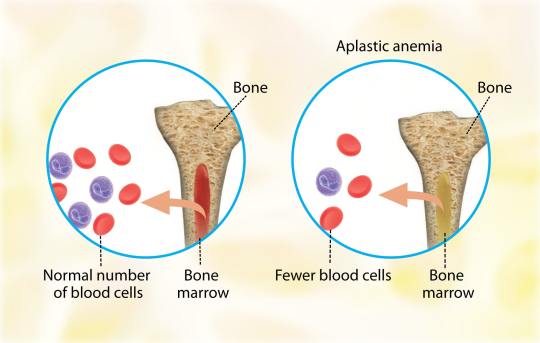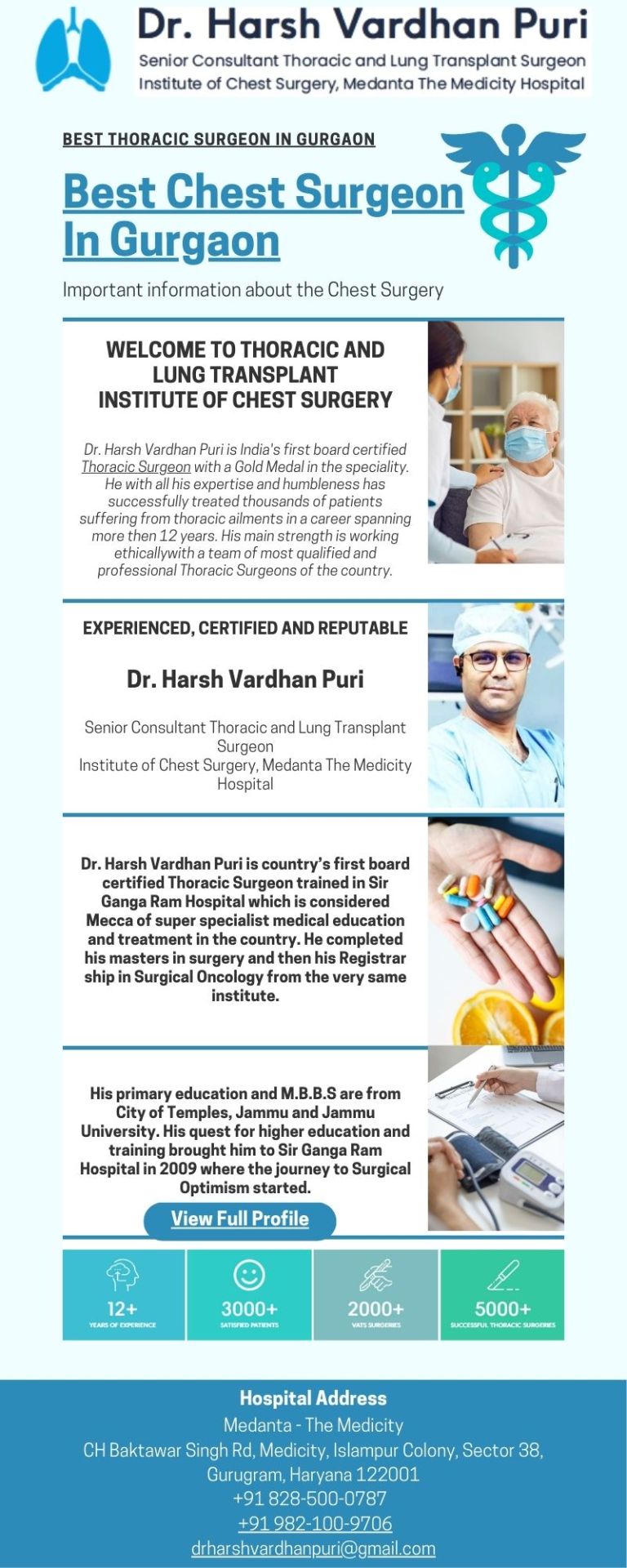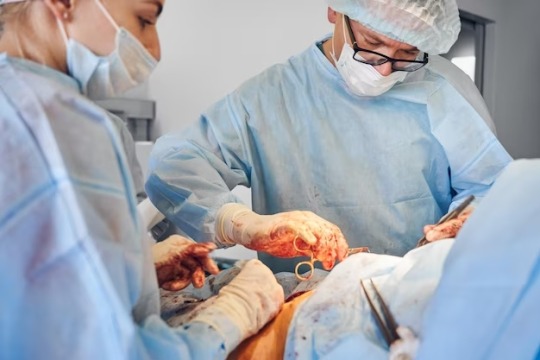#Thymoma Treatment
Text
Who is the foremost expert and the best doctor for thymoma in Karnal?
Introducing: Dr. Surender Dabas: Pioneering Excellence in Thymoma Care in Karnal!
Welcome to the forefront of thymoma treatment where expertise meets compassion, and healing becomes an art. Dr. Surender Dabas stands as a beacon of hope in the realm of medical excellence, specializing in the comprehensive care of the best doctor for thymoma in Karnal. Renowned for his unwavering commitment to patient well-being and innovative approaches to treatment, Dr. Dabas is synonymous with top-tier healthcare in the region.
Why Choose Dr. Surender Dabas for Thymoma Care in Karnal?
Unmatched Expertise: Dr. Dabas brings years of experience and expertise in thymoma management, ensuring that patients receive the highest quality care.
Cutting-Edge Technology: Our state-of-the-art facilities are equipped with the latest advancements in medical technology, allowing for precise diagnostics and innovative treatment options.
Patient-Centric Approach: At the core of Dr. Dabas’ philosophy is a patient-centric approach, where individualized care plans are crafted to address the unique needs of each thymoma patient.
Compassionate Care: Beyond medical proficiency, Dr. Dabas and his team are dedicated to providing compassionate and empathetic care, fostering a supportive environment for patients and their families.
Holistic Wellness: Dr. Dabas believes in holistic wellness, addressing not only the physical aspects of thymoma but also focusing on the emotional and mental well-being of patients throughout their journey.
Frequently Asked Questions about Thymoma
Q1: What is thymoma, and why is specialized care important?
1: Thymoma is a rare tumor of the thymus gland. Specialized care is crucial as it requires an in-depth understanding of the disease’s nuances and tailored treatment plans for optimal outcomes.
Q2: How can I schedule an appointment with Dr. Surender Dabas?
2: Booking an appointment is easy! Simply contact our dedicated helpline or visit our website to schedule a consultation at your convenience.
Q3: What diagnostic services are offered for thymoma at Dr. Surender Dabas’ clinic?
3: Our clinic is equipped with advanced diagnostic tools, including imaging studies and biopsy services, to ensure accurate and timely diagnosis.
Q4: Are there support services for thymoma patients and their families?
4: Absolutely! Dr. Dabas understands the emotional impact of thymoma, and our clinic provides comprehensive support services to help patients and their families navigate the journey with strength and resilience.
Q5: Does Dr. Dabas offer second opinions for thymoma cases?
5: Yes, seeking a second opinion is encouraged. Dr. Dabas is committed to ensuring that patients receive the most accurate diagnosis and appropriate treatment recommendations.
0 notes
Text
Best Thoracic Surgeon in Delhi and Gurgaon, Best Chest Surgeon In Delhi and Gurgaon | Dr. Harsh Vardhan Puri
Dr. Harsh Vardhan Puri is one of the Best Thoracic surgeon in Delhi and Gurgaon, India, with expertise in Lung Cancer Treatment, Thymoma Treatment, Pneumothorax Treatment, Tracheal Stenosis Treatment, VATS Surgery, and Robotic Chest Surgery in Delhi and Gurgaon.
#Best Thoracic Surgeon in Gurgaon#Best Chest Surgeon In Gurgaon#Lung Cancer Treatment in Gurgaon#Thymoma Treatment in Delhi#Pneumothorax Treatment in Delhi#Tracheal Stenosis Treatment in Gurgaon#VATS Surgery in Gurgaon#Robotic Surgery in Gurgaon#Best Thoracic Surgeon in Delhi#Best Chest Surgeon In Delhi#Hyperhidrosis Surgeon In Gurgaon#Lung Transplant Surgeon in Gurgaon#Empyema Surgeon in Delhi
0 notes
Text
Robotic Thymoma Surgery, UniportalThoracoscopic, and Best Lung Cancer Treatment Hospitals in Delhi
Thymoma is a rare type of tumor that develops in the thymus gland, which is located behind the breastbone. If you have been diagnosed with thymoma, it is important to seek medical attention from a specialist who can provide the best treatment options for you.
In recent years, robotic thymoma surgery and uniportalthoracoscopic surgery have become popular treatment options for thymoma. Delhi, being a hub of medical excellence, that provide world-class treatment for thymoma and other lung-related diseases.

Max Super Speciality Hospital, Saket: Max Super Speciality Hospital in Saket is one of the best hospitals for lung cancer treatment in Delhi. The hospital has a team of highly experienced and skilled doctors who specialize in thoracic oncology, thoracic surgery, and pulmonology. They use the latest technology and equipment to provide the best treatment options to their patients. They also have expertise in robotic thymoma surgery and uniportalthoracoscopic surgery.
Robotic Thymoma surgery in Delhi has a team of highly skilled and experienced doctors who specialize in thoracic surgery and pulmonology. They use advanced technology and techniques to provide the best treatment options to their patients. They also have expertise in robotic thymoma surgery and uniportalthoracoscopic surgery.
Uniportalthoracoscopic in Delhi has a team of experienced doctors who specialize in thoracic surgery, pulmonology, and critical care medicine. They use the latest technology and equipment to provide the best treatment options to their patients. They also have expertise in robotic thymoma surgery and uniportalthoracoscopic surgery.
The Best Lung Cancer Treatment Hospitals in Delhi provide world-class treatment options and have a team of highly experienced doctors who specialize in the latest techniques and procedures, including robotic thymoma surgery and uniportalthoracoscopic surgery.
In conclusion, if you have been diagnosed with thymoma or any other lung-related disease, it is important to seek medical attention from a specialist who can provide the best treatment options for you. With the expertise of these hospitals in robotic thymoma surgery, uniportalthoracoscopic surgery, and other advanced techniques, you can rest assured that you are in good hands.
#Robotic Thymoma surgery in Delhi#Uniportalthoracoscopic in Delhi#Best Lung Cancer Treatment Hospitals in Delhi
0 notes
Text
Myasthenia Gravis is an auto immune disease, where your body is attacked by its own cells. The junction between the nerve and muscle gets blocked due to these antibodies.
These antibodies are produced in the thymus gland. Removal of this gland helps in getting cure from this debilitating illness.
TAG- Best Thoracic Surgeon in Gurgaon, Thymoma Treatment in Delhi, Best Chest Surgeon In Gurgaon
0 notes
Text
Cancer
James Wilson x Female Reader
Summary: Wilson gets diagnosed with cancer and decides to administer his own treatment. House and Doctor Y/N L/N assist him and have a discussion about the future.
TW: ANGST, pre-established relationship, cancer, treatments, pain medications, mentions of grief and death.

James Wilson had cancer.
A Stage 2 Thymoma that had started invading the surrounding tissue.
Wilson knew that his chances of survival with conventional treatment were slim to none. He managed to stockpile supplies in order to administer his own treatment.
L/N thought he was crazy, but promised to be there for him in whatever decision he made.
Wilson convinced House to assist him, knowing that the side effects alone would make L/N want to discontinue the intense treatment he had decided on.
Wilson needed someone who was going to stick to the plan, even if he thought it was an idiotic one.
They started his treatment in the living room of House's apartment. House was able to utilize his stash of morphine and vicodin to lessen the pain, but the side effects were still atrocious.
L/N was kneeling on the floor beside Wilson, dabbing the sweat from his forehead with a cool cloth. He mumbled incoherently, his cold hand wrapping loosely around her wrist. She lowered her hand, sending him a reassuring smile as he stared up at her with tired eyes. His skin had lost all color, dark bags forming underneath his eyes as his entire body shivered.
"I'm sorry," He mumbled, she shook her head, "You don't have anything to be sorry for," She assured, brushing his hair away from his sweaty forehead.
His fingers tightened around her wrist minutely, "You don't have to stay," Wilson said softly, "I would understand if you wanted to go," He continued.
"I'm not going anywhere. I love you and I'm not letting you go through this without me being right here to hold your hand," She said.
"I'm tired," Wilson stated, grip loosening as his fingers slid down the soft skin of her forearm.
"I know... Why don't you try and get some sleep? The infusion still has a while to go," L/N said, palm resting against the skin of his chest. His hoodie was saturated with sweat despite the chills that rattled his bones every few seconds.
He shook his head, "I wanna look at you," Wilson said, eyes flickering over her face.
She smiled slightly, "I'll still be here when you wake up, I'm not going anywhere," She assured.
He inhaled, breath stuttering in his chest before he began to cough and gasp. L/N reached over and turned on the oxygen, bringing the mask to his face as he wheezed.
"You're okay, deep breaths," She instructed softly, holding the mask in place for him. Wilson rested his hand over her's, muscles trembling with the effort before letting his arm fall aside limply again. He blinked up at her, taking deep breaths before he allowed his eyes to flutter shut as his exhaustion took over.
"I'll be right back, okay?" She said, he nodded without opening his eyes. L/N lifted the band of the oxygen mask over his head to keep it in place before standing up.
House watched her walk into the kitchen, he knew that seeing Wilson like this couldn't be easy for her. A selfish part of House wanted to tell her to leave, he could handle Wilson on his own without crumbling under the pressure like she inevitably would. But House knew that L/N loved Wilson and she would be beside him no matter how things ended.
House grabbed his cane and stood up, making his way into the kitchen. L/N stood in the farthest corner of the room with her hand over her mouth and her other arm wrapped around herself as she sobbed quietly.
L/N quickly wiped her tears away when she noticed him, taking a shaky breath as she attempted to calm herself down.
"I'm sorry, I didn't want him to see," She said softly, breaths stuttering in her chest as more tears rolled down her cheeks.
House walked over, hesitating for a moment before pulling her into his arms. He could feel her body trembling before she let out a quiet sob, pressing herself against his chest. She wrapped her arms around him as she broke down in his embrace. He could feel her tears soaking into his shirt, allowing her to release her pent up emotions.
She had put on a brave face for Wilson, focusing all her attention on him throughout this process. L/N had attended every appointment and been in the room for every scan since his diagnosis. Then she stood by her husband even in the face of his god-awful plan to give himself treatment.
This treatment regimen was not recommended and there was definitely a reason for it.
L/N pulled away, leaning back against the counter as she wiped the tears from her cheeks with a shaky breath.
"I'm sorry for crying on you," She said softly.
"Don't apologize," House replied.
They stood in silence for a moment, listening to the soft hiss of the oxygen in the adjacent room.
"I-I don't know how to do this," L/N admitted quietly, twisting her wedding band around her finger, "I know that you're probably the worst person to ask, but you won't sugarcoat it... How am I supposed to let him go if this doesn't work?" She asked, voice shaking as she tried to keep from falling apart again. More tears rolled down her cheeks as she looked up at him, waiting for a reply.
House let out a breath, "You don't," He stated.
L/N nodded, wiping the tears from her cheeks before more quickly fell to replace them. House looked down at the floor between them, tapping his cane against the wood.
"You love him... You're going to keep loving him even after he's gone," House stated, grip tightening on his cane.
"You either feel everything or absolutely nothing when you first get the news. Then you go numb or you shatter under the weight of your loss. You'll see him everywhere and miss him every second of every day. It could take a year or more for you to get through that initial wave of grief... Some people never get through it," He continued, eyes briefly meeting with her's.
"Then maybe you'll miss having someone around, the silence will feel like it's suffocating. You'll go out on a date, but realize how different they are and you'll miss him."
He glanced into the living room to where Wilson was laying on the couch before his eyes returned to the floor, "You'll grieve again. You'll feel like nothing will ever be right without him. Every day will feel like a battle until one day you can think about him without crying. You'll pack his things away, pretend that life didn't stop when he died. Then you'll see something that makes you think of him, smell his cologne on someone or hear a stupid joke that will throw you right back into that grief," He stated.
He looked up at her, finding her staring up at him with tear-filled eyes, "The pain never stops, you just learn to live with it," House said.
#angst#james wilson x you#james wilson x reader#james wilson imagine#james wilson#house md imagine#house imagine#gregory house#house md#gregory house x reader#james wilson x female reader
156 notes
·
View notes
Text
Thinking about what would have happened after the crane collapse if it was Wilson who went after House and confessed his feelings instead of Cuddy.
What if the rest of the general storyline stayed the same? And Wilson had a health scare (could be the same as Cuddy’s, or maybe in a happier world they discover his thymoma earlier so it’s easily treatable) which causes House to use Vicodin to be there to support Wilson.
Because Wilson would have done so much better by House in that situation. Instead of breaking up with him over it Wilson would have done his best to get House the support he needed to stop his slip from becoming a full relapse.
He would have said that a slip after two years sober isn’t the end of the world, that recovery isn’t linear and that with the right treatments and supports and work he can go back to being sober.
He would not think House’s slip was a reflection of how much he did or did not care about him or their relationship.
He would have made peace with the fact that slips or even full relapses could happen, and gone into the relationship knowing that might be something he’d need to support House through.
He also would have recognized that his health scare was the first majorly upsetting event House was going through since getting sober. Would he wish House used his support system instead of slipping? Yes. But he wouldn’t be angry House slipped.
Because Wilson would have been honest with himself about what he was getting into, dating an addict.
#housethemd writes#house md meta#house md headcanons#hilson headcanon#house md#james wilson#hate crimes md#greg house#hilson#dr house#dr wilson#wilson x house#house/wilson#gregory house
244 notes
·
View notes
Text
Would you all like to hear about the things I found that I now kinda can’t work on bc no laptop?
Notes!!
- [REDACTED] aka House’s illness on the casefic coming up next on HH:Reprise
- House’s disability research (including information on diabetic infarction, a visual exploration of House’s possibly-affected muscle groups, and an article on limb-saving surgery and the impairments people experienced following it)
- Huntington’s research for Thirteen’s disease progression possibilities (pending: whether her symptoms in the clinical trial officially count for symptom onset)
- Falls from heights (no I’m not doing a Reichenbach thing but I’m always curious. It’s also a fun way to demonstrate how I sometimes use medical studies for randomization and probability in my writing)
- Wilson thymoma research; aka thymoma growth rate and treatment. Featuring bad math as well as bad medicine.
- And lots and LOTS of notes on HH:Reprise
- Unrelated, an entire folder of notes on my current novel, which is on the back burner atm bc it needs a full rewrite.
#notes notes notes#finding them JUST as I have no laptop makes me want to cry#bee does medicine badly#fanfic writer blues
8 notes
·
View notes
Text
The more research I do into Wilson's cancer (stage II thymoma) the more confused I am
According to the national cancer institute the treatment for stages 1 and 2 are surgery .. then maybe radiation therapy after depending on the situation.
According to cancernet the 5 year survival rate when the cancer is located only in the thymus is 93%. If it's spread to surrounding tissue and organ the survival rate is still 79%. And if it's found only after spreading to distant parts of the body the survival rate is still 40%, on average much higher than say lung cancer that's still localized (which is 56%) while lung cancer that's spread to other organs has a 5 year rate of only 5(five!) %. (This is from the American lung association)
I just find it frustrating that of all the cancers they picked, they picked one that ... Won't kill him? At stage 2? And he didn't need to do chemotherapy he needed to just have surgery???
What's even more interesting is I was looking into this cancer trying to find a way to make it believable .. give them the benefit of the doubt. And I found a disorder called Cowden Syndrome which is very rare and causes the patient to have an increased risk of both benign and cancerous tumors in their life.
While the most common tumors are in the skin, mouth, and gastrointestinal tract, the patient has an increased risk for cancerous tumors in the thyroid, colorectum, breast, etc.
Now these growths would be noticed on any number of scans so I can only assume a whole body scan was the only way they got a diagnosis of such a rare (indeed very rare cancer for Wilson. A statistic I read on cancer net said that for every 1 million people in the US only 1.5 people will be diagnosed with this disease. Naturally the complete picture can never be known but that's an insanely specific cancer for Wilson to get !)
Anyway the only way I can justify him having such a small and specific cancer is to have him highly susceptible to tumors and therefore one grew there. By that logic maybe he got another one elsewhere and that was the real reason he was dying.
Not a doctor so if anythings inaccurate I apologize but I just spent a lot of time reading differential diagnoses for both thymomas and Cowden Syndrome and can honestly say as far as rare interesting disorders go, that would have been my choice. Fits very well with House's zebras not horses mentality that the cancer doctor would get a disorder specifically generating tumors throughout his whole life and maybe one just went somewhere deadly.
#hey look im posting another essay#this one is actually interesting...kinda ..it is to me#james wilson#house md#house season 8
17 notes
·
View notes
Text
Aplastic Anemia | Causes, Symptoms, Diagnosis and Treatments

Aplastic anemia (AA) is the syndrome of chronic primary hematopoietic failure caused by injury, which results in decreased or absent hematopoietic precursors in the bone marrow and accompanying pancytopenia.
Aplastic anemia is classified as either moderate, severe (SAA), or very severe (vSAA).
Three primary mechanisms can result in the development of AA: –
1. Direct injury.
2. Immune-mediated.
3. Inherited or acquired bone marrow failure.
Usually, AA is idiopathic, however, it can be attributable to: –
- Radiation.
- Toxic chemicals (like Benzene, solvents, and glue vapors).
- Cytotoxic drugs (chloramphenicol, gold).
- Immune-related disorders (Eosinophilic fasciitis, SLE, Graft versus host disease).
- Thymoma.
- Viral infections (Epstein-Virus Infection, Parvovirus B19, Human immunodeficiency virus (HIV), and Hepatitis virus).
- Anorexia nervosa and paroxysmal nocturnal hemoglobinuria (PNH).
Patients typically present with non-specific symptoms caused by associated cytopenia, such as: –
- Low energy levels, pallor, and headaches with anemia.
- Mucosal bleeding.
- Bruising/petechiae.
- Menorrhagia with thrombocytopenia.
- Fever with or without evidence of infection with neutropenia.
The most common complications of aplastic anemia are bleeding, infections, and transformation to lymphoproliferative disorders.
Aplastic anemia has the following diagnostic criteria: –
The presence of bone marrow hypocellularity and two or more cytopenias (reticulopodia less than 1% or less than 40,000/microliter, neutropenia less than 500/microliter, or thrombocytopenia less than 20,000/microliter).
The bone marrow cellularity in moderate disease is less than 30%.
The severe disease has less than 25% cellularity or less than 50% cellularity with fewer than 30% hematopoietic cells.
Very severe meets the severe criteria in addition to neutropenia less than 200/µL.
Aplastic anemia treatment focuses on the underlying cause.
If possible, remove the offending agent(s).
Treatment is dependent on the patient’s age, disease severity, donor availability, and performance status when there is no distinctive reversible cause.
Young patients (less than 50 years old) with severe disease who are in good health should receive an allogeneic hematopoietic cell transplant (HCT) before starting immunosuppressive therapy.
Older patients (50 years and older) in good health, as well as young patients without an HCT donor, are given full-dose immunosuppressive therapy using: –
- Eltrombopag.
- Horse/rabbit anti-thymocyte globulin (ATG).
- Cyclosporine A.
- Prednisone.
Read more at: https://medicaregate.com/aplastic-anemia-causes-symptoms-diagnosis-and-treatments/
2 notes
·
View notes
Text
Exploring Treatment Options for Thymoma: A Comprehensive Guide
Discover the various treatment options for thymoma a rare cancer of the thymus gland. This guide covers everything from surgery and radiation therapy to chemotherapy and emerging treatments, helping you understand the best approaches for managing this condition.
1 note
·
View note
Text
Who is the best doctor for thymoma in Karnal, ensuring the best care and expertise?
Introduction:
Welcome to the forefront of excellence in medical care, where healing meets expertise — introducing Dr. Surender Dabas, your trusted partner in thymoma treatment. As a beacon of medical proficiency, Dr. Dabas stands out as the best doctor for thymoma in Karnal, embodying a commitment to compassionate care, cutting-edge treatments, and a patient-centric approach.
Why choose Dr. Surender for best doctor for thymoma in Karnal?
Dr. Surender Dabas, a distinguished medical professional specializing in thymoma, brings forth a wealth of experience and a sterling reputation for delivering unparalleled healthcare. Renowned for his unwavering dedication to patient well-being, Dr. Dabas employs the latest advancements in medical science to provide personalized and effective treatments.
Under Dr. Dabas’s expert guidance, patients can expect a holistic and comprehensive approach to thymoma treatment, ensuring not only recovery but an enhanced quality of life. His clinic in Karnal is equipped with state-of-the-art facilities, creating an environment that fosters healing and reassurance.
Frequently Asked Questions for best doctor for thymoma in Karnal
Q1: Why choose Dr. Surender Dabas for thymoma treatment in Karnal?
Dr. Surender Dabas is widely recognized as the best doctor for thymoma in Karnal, combining extensive experience with a compassionate approach. His commitment to personalized care and utilization of cutting-edge treatments makes him a trusted choice for patients seeking excellence in thymoma treatment.
Q2: What sets Dr. Dabas apart from other thymoma specialists?
Dr. Dabas stands out for his holistic approach, addressing not only the medical aspects of thymoma but also focusing on the overall well-being of the patient. His commitment to staying abreast of the latest advancements ensures that patients receive the most innovative and effective treatments available.
Q3: What services does Dr. Dabas provide for thymoma patients?
Dr. Surender Dabas offers a comprehensive range of services, including accurate diagnosis, personalized treatment plans, and ongoing support. From surgical interventions to advanced therapies, his clinic provides a one-stop solution for individuals seeking the best care for thymoma in Karnal.
Q4: How can I schedule an appointment with Dr. Surender Dabas?
Booking an appointment with Dr. Dabas is convenient and straightforward. You can contact his clinic directly through the provided contact details or visit our website to schedule an appointment online. Our team is dedicated to ensuring prompt and efficient service for all patients.
0 notes
Text

Best Thoracic Surgeon in Delhi and Gurgaon, Best Chest Surgeon In Delhi and Gurgaon | Dr. Harsh Vardhan Puri
Dr. Harsh Vardhan Puri is one of the Best Thoracic surgeon in Delhi and Gurgaon, India, with expertise in Lung Cancer Treatment, Thymoma Treatment, Pneumothorax Treatment, Tracheal Stenosis Treatment, VATS Surgery, and Robotic Chest Surgery in Delhi and Gurgaon.
#Best Thoracic Surgeon in Gurgaon#Best Chest Surgeon In Gurgaon#Lung Cancer Treatment in Gurgaon#Thymoma Treatment in Delhi#Pneumothorax Treatment in Delhi#Tracheal Stenosis Treatment in Gurgaon#VATS Surgery in Gurgaon#Robotic Surgery in Gurgaon#Best Thoracic Surgeon in Delhi#Best Chest Surgeon In Delhi#Hyperhidrosis Surgeon In Gurgaon#Lung Transplant Surgeon in Gurgaon#Empyema Surgeon in Delhi
0 notes
Text
Chest Surgeon in Delhi
As an AI language model, I can provide general information about the role of a chest surgeon and some common treatments they might perform. However, it's important to note that I am not a medical professional, and for personalized advice and treatment, you should always consult a qualified healthcare provider.

Chest Surgeon in Delhi
A chest surgeon, also known as a thoracic surgeon, is a medical specialist who deals with surgical treatments of organs within the chest cavity, such as the lungs, heart, esophagus, and other thoracic structures. Some of the conditions a chest surgeon may treat include:
Lung Cancer: Surgery may be performed to remove cancerous tumors from the lungs or other surrounding tissues.
Pneumothorax: A collapsed lung condition where surgery may be required to remove air or repair the lung.
Thoracic Trauma: In cases of severe chest injuries, surgery might be necessary to repair damaged organs or structures.
Esophageal Disorders: Surgical interventions to treat conditions like gastroesophageal reflux disease (GERD) or esophageal cancer.
Pleural Effusion: Excess fluid buildup around the lungs, which may require drainage or other surgical procedures.
Lung Transplantation: In cases of severe lung diseases, a lung transplant may be considered.
Thoracic Sympathectomy: A procedure to treat conditions like hyperhidrosis (excessive sweating) or certain vascular disorders.
Thymus Gland Disorders: Surgery to treat thymus-related conditions like thymoma or myasthenia gravis.
It's important to understand that each patient's case is unique, and the recommended treatment plan will depend on various factors, including the patient's overall health, the specific condition being treated, and the surgeon's evaluation.
If you or someone you know requires chest surgery or any medical treatment, it is crucial to seek the advice of a qualified medical professional who can provide a proper diagnosis and create an individualized treatment plan based on the patient's needs and circumstances.
0 notes
Link
🎗️ Raise Awareness for Thymoma! 🎗️
Did you know that thymoma is a rare tumor that develops in the thymus gland? As we continue to shed light on different health conditions, let's take a moment to learn about thymoma and show our support for those affected by this rare form of cancer.
0 notes
Text
best chest surgery in india

A thoracic surgeon is a specialized medical professional who performs surgical procedures on organs and structures within the thoracic (chest) cavity. This includes the heart, lungs, esophagus, trachea, mediastinum (the area between the lungs), and other surrounding tissues.
The responsibilities of a thoracic surgeon may include:
Diagnosis and evaluation: Thoracic surgeons assess patients' medical conditions, review diagnostic tests such as X-rays, CT scans, and MRIs, and determine if surgery is the appropriate treatment option.
Surgical procedures: Thoracic surgeons perform a variety of surgical procedures, which may include open surgeries or minimally invasive techniques such as thoracoscopy or video-assisted thoracic surgery (VATS). They operate on conditions such as lung cancer, esophageal cancer, thymoma, mediastinal tumors, chest wall deformities, and congenital chest abnormalities.
Pre-operative and post-operative care: Thoracic surgeons are involved in the pre-operative evaluation and preparation of patients for surgery. They also provide post-operative care, monitoring patients' recovery, managing pain, and addressing any complications that may arise.
Collaboration with other healthcare professionals: Thoracic surgeons work closely with other healthcare professionals, including anesthesiologists, radiologists, oncologists, and pulmonologists, to provide comprehensive care to patients.
Research and education: Many thoracic surgeons engage in research activities to advance knowledge and improve surgical techniques. They may also be involved in teaching and training medical students, residents, and fellows.
Becoming a thoracic surgeon requires extensive education and training. After completing a bachelor's degree, aspiring thoracic surgeons must attend medical school, followed by a residency program in general surgery. Subsequently, they undertake a fellowship program specifically focused on thoracic surgery, which typically lasts two to three years.
Overall, thoracic surgeons play a crucial role in treating conditions affecting the chest cavity, particularly those involving the heart, lungs, and surrounding structures. Their expertise in surgical techniques and specialized knowledge enable them to provide essential care for patients with thoracic disorders.
0 notes